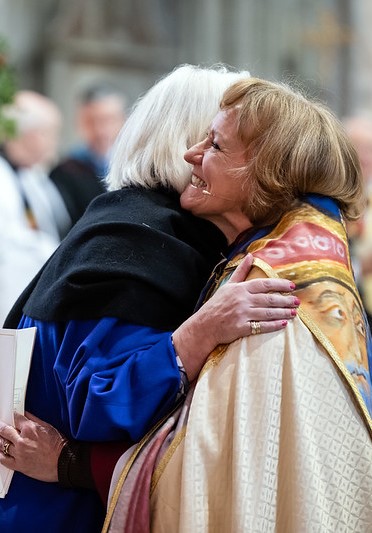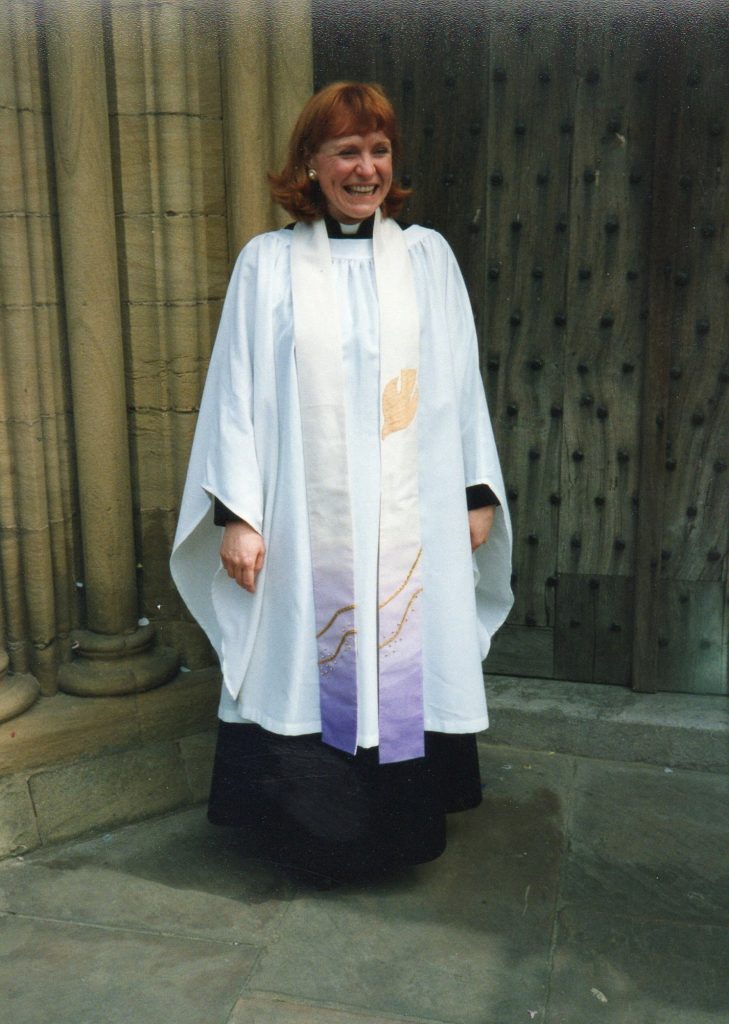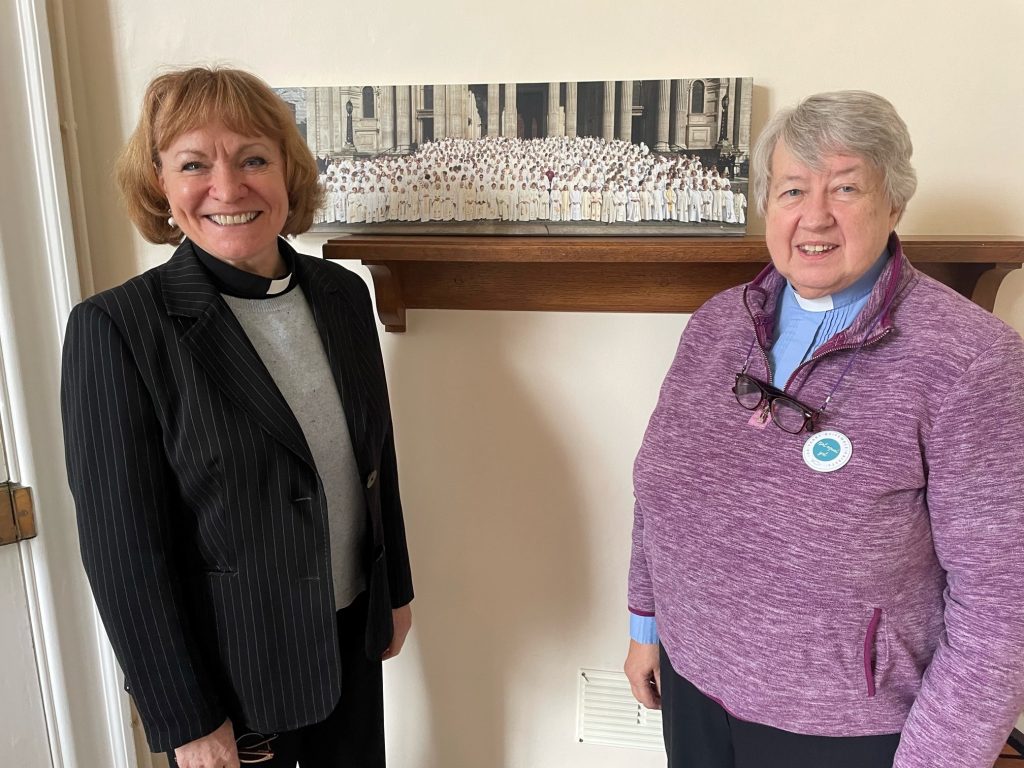It has been a great privilege to be part of historic change to ordain women to the priesthood in the Church of England. For the past thirty years I have loved life and ministry as a priest, and for six years before that as a deacon. I’ve served a curacy in South Leeds, then a secondment period at BBC Leeds, followed by ten years as Vicar of Huddersfield, then Dean of Birmingham and now Dean of Winchester.
I first embraced Christianity as a teenager and had absolutely no idea of the possibility of women becoming priests. This was something beyond my imagination. Though God’s call to me, at the age of 21, was hard at first to comprehend, yet, over the next couple of years I was given courage to say ‘yes’ and become part of a movement of Spirit-led change that has transformed the church.
‘Christ has no body now on earth but yours.’
When St Teresa wrote her famous prayer, ‘Christ has no body now but yours…’ she was affirming the teaching of scripture, that the gifts and calling of the Holy Spirit are available to all people. We are all called to be the hands and feet, the eyes, and the heart of Christ in the world. The promise of our baptism, identical for boys and girls, is that the gifts of the Holy Spirit are for everyone. The gifts are not gendered. The Holy Spirit offers an equal opportunity!

I was born into a more gendered world where, on the whole, there was still a division between men’s and women’s work. However, this was changing, and women were aspiring to enter all aspects of the work force. In this context people began to question why women might not offer their gifts and skills as ordained ministers and the church benefit from the gifts of all the people of God.
But it’s vital to say that the movement to ordain women was always about more than ‘jobs for the girls’. There is a deep symbolic and sacramental significance to ordination that carries a profound message about humanity made in Gods image. In a world of binary difference, it was easy to slip into stereotypes of men being seen as leaders, spiritual and intellectual (and identifying these characteristics as ‘first-class’) with women being seen as those who serve and are earthly and emotional (and these characteristics are seen as ‘second-class’).
However, Jesus is the Saviour who loved women, treated them with respect and affirmed their agency. Despite conventions of the time, Jesus had women friends travelling with him and ministering to him. Women were last at the cross and first at the resurrection. Women held leadership roles in the early church.

I believe that men and women priests, ministering alongside one another, witnesses to humanity wonderfully made in Gods image and the freedom of the Holy Spirit to gift and call without discrimination. In my experience, many men find serving alongside women colleagues to be a liberating experience for them too.
A priest has a particular representative role, handling holy things on behalf of the body of Christ and on behalf of God. It’s important that both men and women take the role of representing humanity and representing God for the community. In this way our faith that we are made in Gods image, male and female is embodied and affirmed.
‘Did we get you because we ordered the cheap coffin?’
During my lifetime women have made great strides in terms of equality and opportunity to contribute to every aspect of life. However, sadly, there are still great challenges in the church and in our wider culture and world. We see examples around the world that rights and privileges once gained can be taken away again.
Modern technology enables sexism and misogynistic bullying and threats to increase, rather than diminish, for girls and women in their private and public lives. Globally, the UN estimates that almost one in three women has been subjected to physical or sexual violence at least once in her life. This figure does not include sexual harassment. Women’s and girls’ safety from violence and threat is surely at the heart of human rights.
Sadly, the attitudes behind these statistics can play out in microaggressions that women experience daily, including in the church. Shortly after we had been ordained as priests, my friend went to do a funeral visit. She knocked on the door and a man opened it and said, ‘Did we get you because we ordered the cheap coffin?’ She took this in her stride, but afterwards we wondered, was he being deliberately sexist, or simply rude, or in some clumsy way trying to be funny? Women clergy, including Bishops, still face sexist and rude comments and ‘jokes’ that are not funny. These can be a way of undermining the authority given to women by the church and the dignity given to us by God. As Christian men and women we need to work together to create a culture where this kind of behaviour is unacceptable.
So, I hope that we will pause and make time this year to celebrate the change brought about 30 years ago and its wider significance. That women and men are made in Gods image and that the Spirit’s gifts are available to all. That, at long last, with joy, for the past 30 years women and men have been able to offer themselves to serve the church as priests and know that in Christ’s service is perfect freedom.
This article was first published by the Diocese of Winchester – Communications Team. To read the full article on the Diocese of Winchester website, click here



